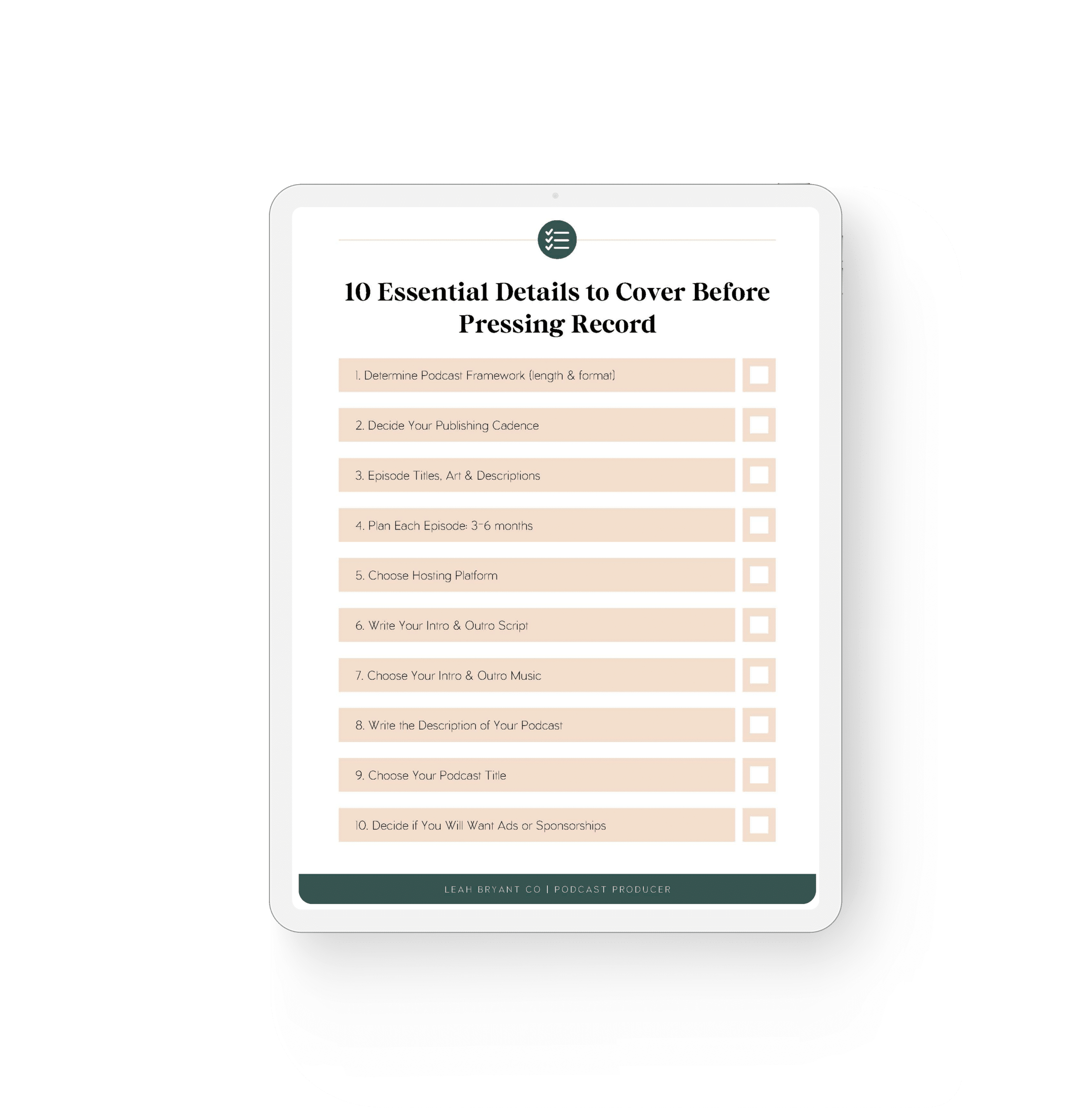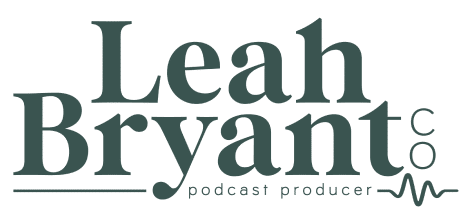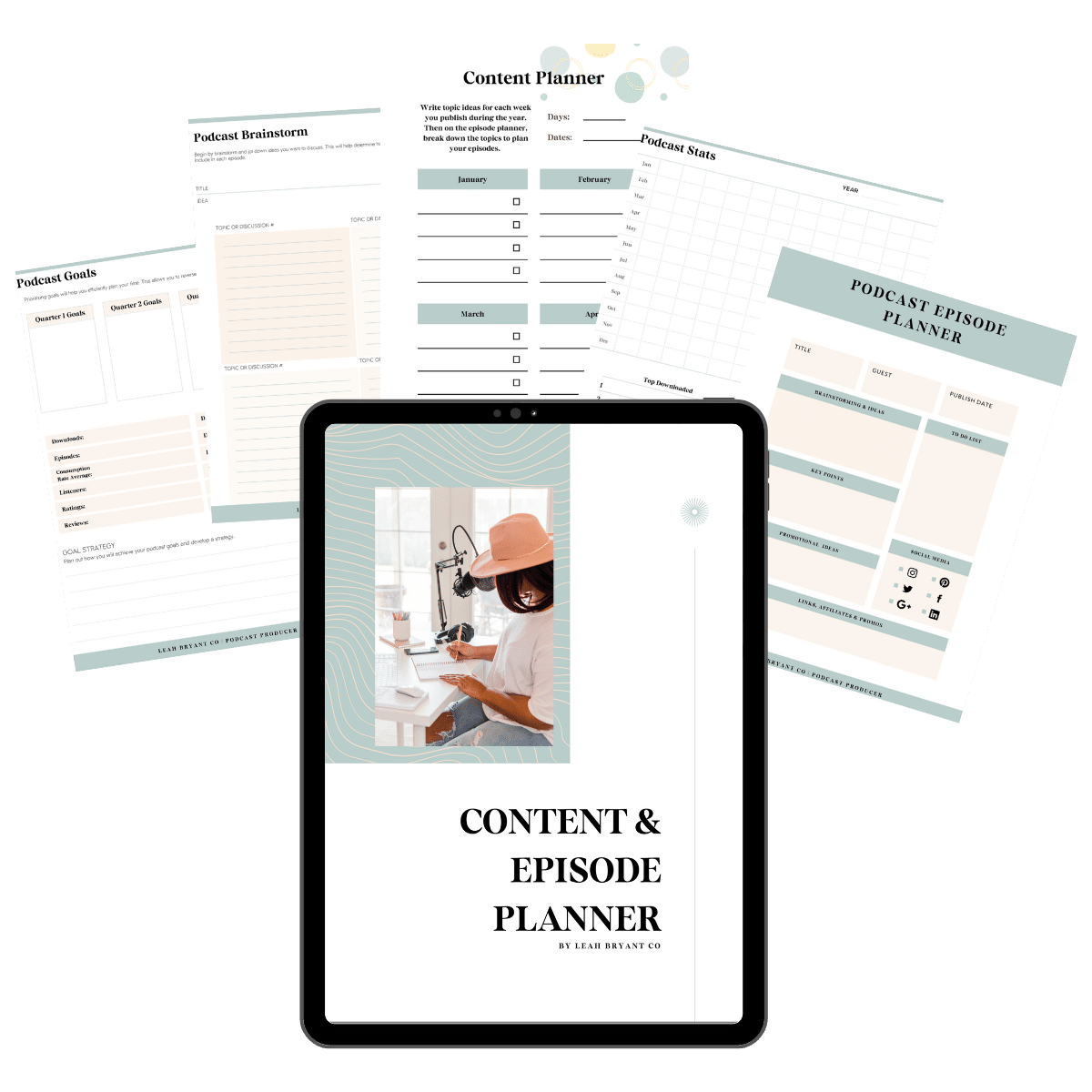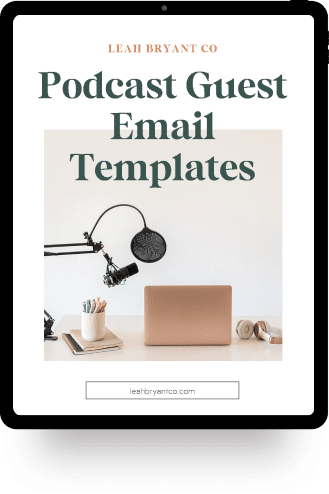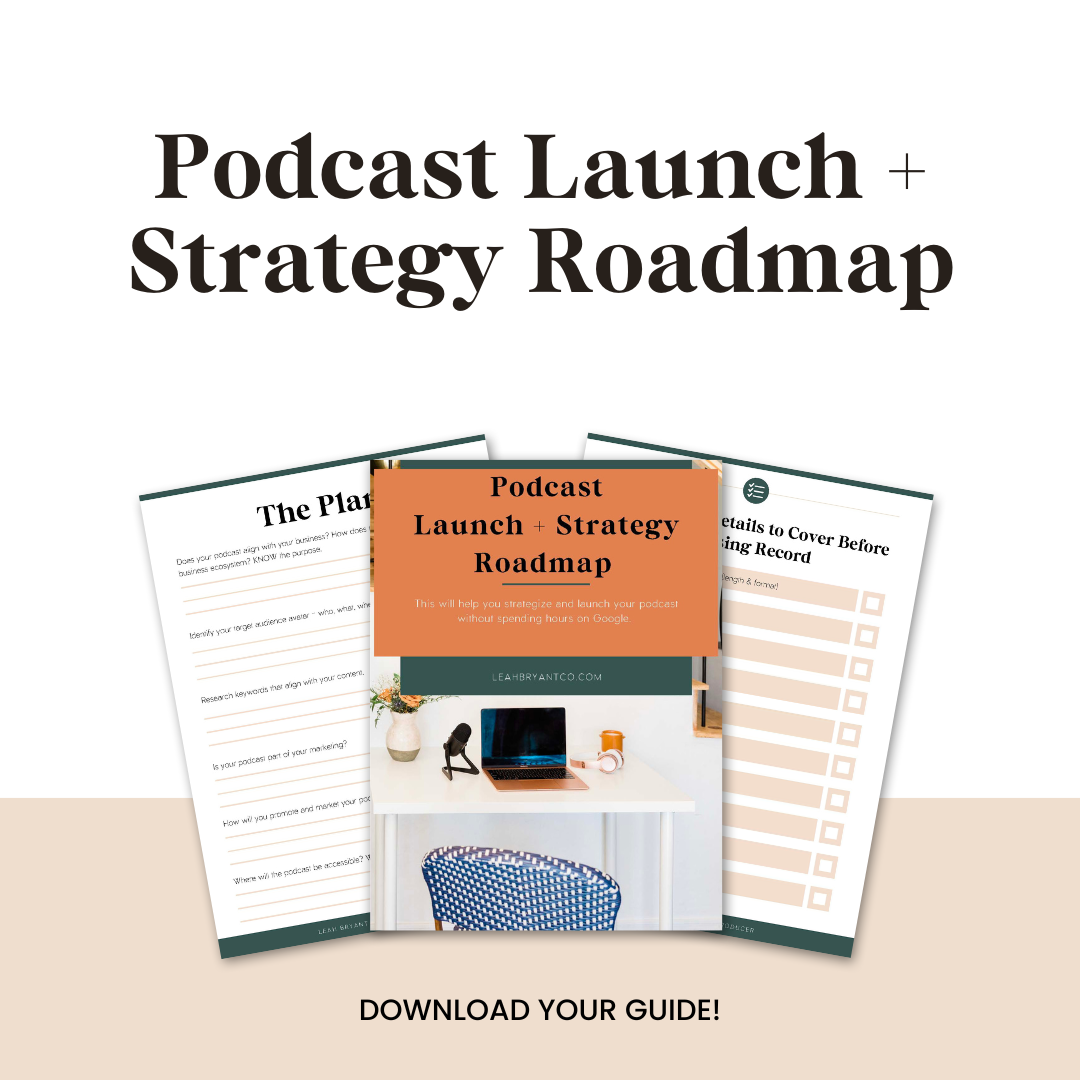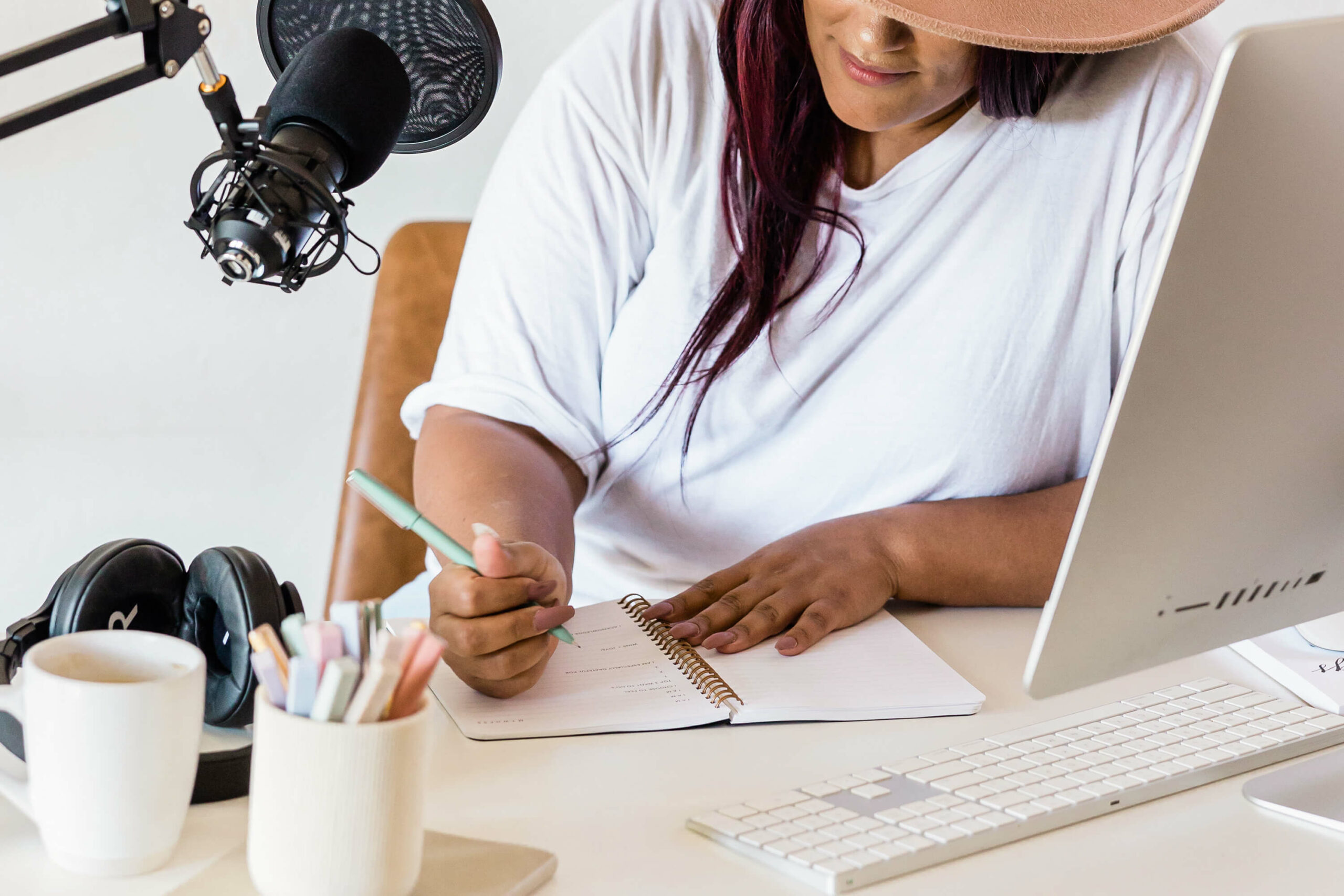
What to Do Before Launching a Podcast: Four must-do steps
So, “start a podcast” has been on your dream goals list for a while now, and you’re ready to take the leap (woohoo! ????) But sometimes, when you get deep into the planning stages of a podcast launch, the to-do’s start stacking up and the overwhelm sets in – bigtime.
As a podcast producer, manager, editor, and general all-around podcasting ninja, I know *just a little bit* about what to do before launching a podcast. So, what do you really need to start a podcast? What’s most important in the beginning? Spoiler alert: it isn’t spending $1000’s on equipment.
What to do before launching a podcast?
The list is actually pretty simple, and most of the things on it can be done without spending a billion dollars! These methods, products, and software will set you up for the podcasting long haul, keep you organized (and sane), and help you sound fabulous on air. The recipe for success comes down to four things:
- Conceptualizing your podcast
- Content and marketing strategy
- Setting up with the right equipment and tech stack
- Making a recording plan
Need more details on how to do those things? Keep reading for my tips and recommendations!
Conceptualize your podcast
From the beginning, you’ll need to be clear on the ins and outs of your niche, audience, and format. These elements will set your entire podcast’s overall direction and theme for the foreseeable future, so take a little time to dream and think things through.
Bonus points: Before going through the concept brainstorming phase, find out your podcasting superpowers with my quiz!
Choose a niche
Which kinds of topics and themes will you cover? Shoot for a niche that aligns with your passions and expertise and appeals to a wider listening audience. You can find your niche in five steps with help from this post!
Identify your target audience
Knowing who your podcast is for helps you better serve your audience’s needs and record podcasts they can’t wait to listen to. Who’s listening to podcasts in your niche already? Check out competitors’ social media pages and podcast communities online to get a better idea of listener demographics and potential topics. Are you adding a podcast to your business ecosystem? Dig deep into customer profiles, surveys, and testimonials for insights into why people love to work with you and how you could help them even more.
Determine the format
You get to choose how long your episodes will be, how often you’ll publish, and the overall format of your podcast. Are you thinking of going solo or working with a cohost? Do you want to do most of the talking, or would you rather feature rotating guests? You can always switch things up later, but choose what feels sustainable and doable right now. It’s better to show up consistently than overcommit and burn out before you’ve gained an audience.
Create a unique and catchy name
No pressure, but choosing your podcast name is a pretty big deal. It will become a core part of your brand that makes a first impression on listeners and tells them what to expect. It’s okay to take your time to land on the right name! Before you commit, you can use namecheckr.com to see if the corresponding handles are available around the internet and on social media and The Patent and Trademark Office to double-check if it’s already trademarked by someone else
Content and marketing strategy
A strong content and marketing strategy is key to drawing in new listeners – after all, you want people to know about your podcast! Check these things off the list before launch to set yourself up for success.
Develop a content calendar
This is one of my favorite stages! It’s all in the details – get down to the granular level of which episodes you want to record and create a production timeline for everything from pre-show prep to post-production. This will keep your expectations grounded and keep you publishing episodes on the regular (instead of trying to think up a new topic the day before you record!)
My Content + Episode Planner can help you brainstorm and plan episodes, organize your topics, and track goals & listener stats.
Create episode outlines or scripts
Pre-show prep is the surefire way to make engaging and informative shows. Don’t worry about writing out every little detail – the main goal is to make it easier to have a great episode flow and remember everything you want to say. Do some basic research, ask yourself lots of questions (and find the answers!), and find a couple of cool quotes or fun facts to reference.
Promote your podcast
Whichever platforms you’re on, hype up your new episode with posts, stories, and audiograms. On Instagram, it’s all about the reels. For Pinterest, create an eye-catching graphic and SEO-friendly description. Have an email list? Send a quick episode recap with a link to your subscribers!
Network and collaborate with other podcasters in your niche
Be a guest and host other podcasters on your podcast. You’ll build new relationships with other people in your niche and get new ears on your podcast from someone with an established audience. Need a little help figuring out what to say? I have a freebie for that!
Equipment and technical requirements.
Spend a little energy and money to do these things right from the start, and you’ll have a solid podcasting setup for years to come. These resources will help you record smoothly and get amazing audio every time (after all, podcasts are an audio experience, right?)
Recording equipment
There are three absolutely essential pieces of gear you need (and I’ll bet you already have at least one of them!) Before you record, grab a microphone, headphones, and a computer.
Now, if you’ve ever Googled which microphone or headphones to use for podcasting, you might have seen some recommendations and price tags that seem…a little bit crazy! ???? But I’m here to tell you that you don’t have to spend much money. Just go with things that fit your recording space and budget. I recommend the Shure MV7 and these headphones. You can find the complete list of my favorite resources on this page.
Choose a hosting platform
This one’s a little on the technical side, but stick with me: your podcast usually isn’t hosted on listening services. Technically, you could host your podcast only on Apple Podcasts, but I wouldn’t recommend it! When your podcast “lives” on a dedicated hosting platform, it can be played and downloaded by people who use any podcast app. Buzzsprount and Hello Audio are my go-to hosting platforms.
Create cover art for your podcast
We podcasters tend to focus more on planning and recording audio content for the masses, but branding is just as essential to your podcast! You can match your existing business or personal branding or go for something entirely new. Either way, you’ll need dedicated podcast cover art. I recommend Jenny H – she does a fabulous job creating cover art for my clients and me.
Recording and editing software
If you’re an Apple user, you already have GarageBand, which is free and perfect for podcast recording. My favorite paid services are Riverside (for recording only) and Hindenburg (for recording and editing). Pro tip: once you’ve finished recording, save your audio to a central place where you can find it and keep it backed up. I like Dropbox, but you could also use Google Drive or an external hard drive.
A quiet recording space
You don’t have to build an at-home studio to make a podcast! Just do what you can to minimize background noise and echoes. A quiet room in your house with plenty of furniture, curtains, and carpet or a rug goes a long way toward soundproofing, and a good microphone will isolate your voice even more.
If you have roommates or live with family, try to set aside some interruption-free recording time where you can stay focused and in the zone. Especially if you have kids, it can be beneficial to line up recording time when you know they’ll be asleep, at school, or having fun outside of the house!
Ready to start that podcast?
Get your free Podcast Strategy + Launch Roadmap to guide you through my proven launch process. And when you’re deep in the planning stages, just remember what you need to do before launching a podcast is really just four easy steps. Think through your concept, plan out a content and marketing strategy, gather the right equipment and software, and schedule your recording time!
Need more support leading up to your podcast launch? We can help you with that! We’re ready to help you strategize, take care of the logistics, and cheer you on every step of the way!
*This post contains affiliate links, so I may earn a small commission when you make a purchase through links on my site at no additional cost to you.
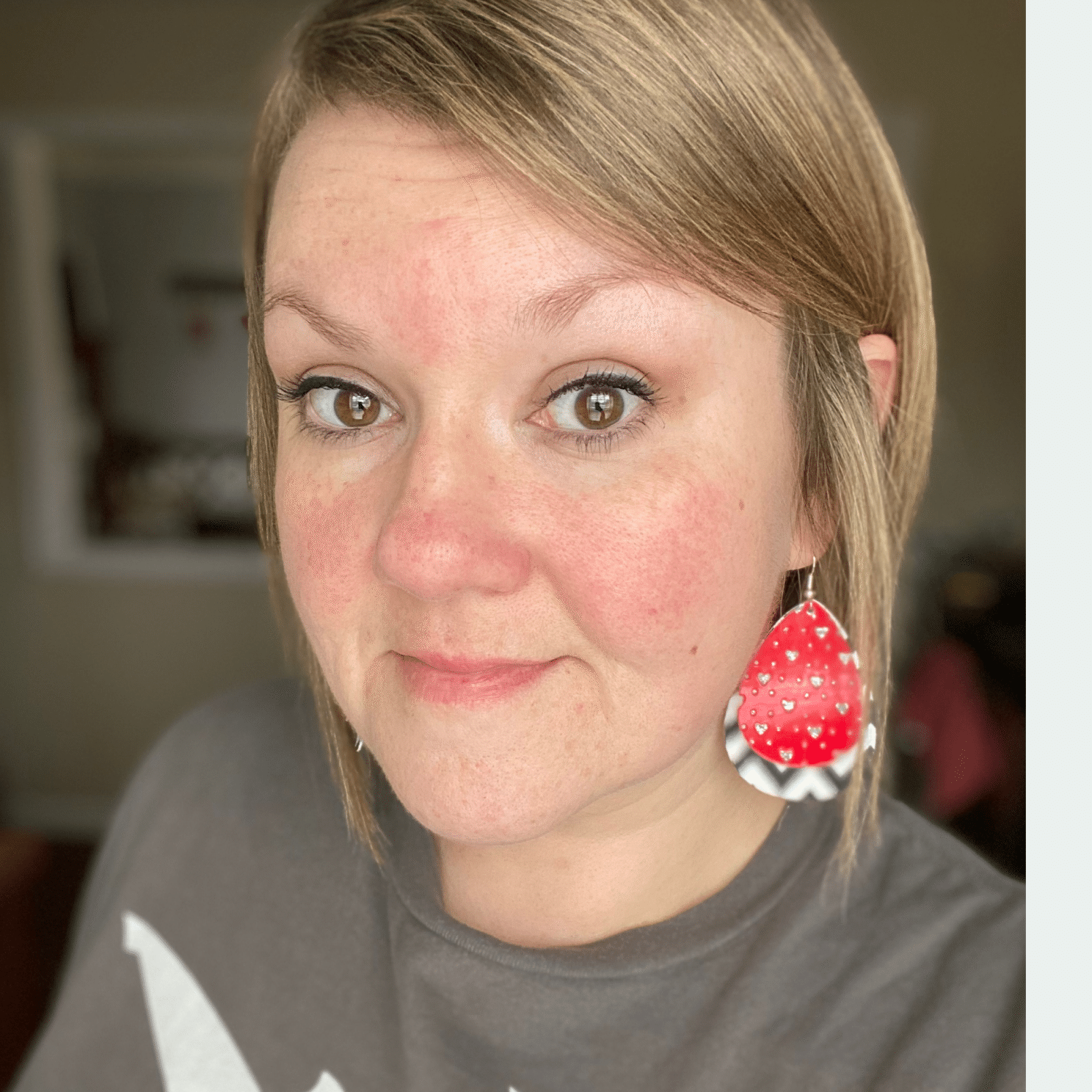
Meet Leah
The only thing I love more than binge listening to podcast, is helping you publish a podcast you love!
I'm looking for...
